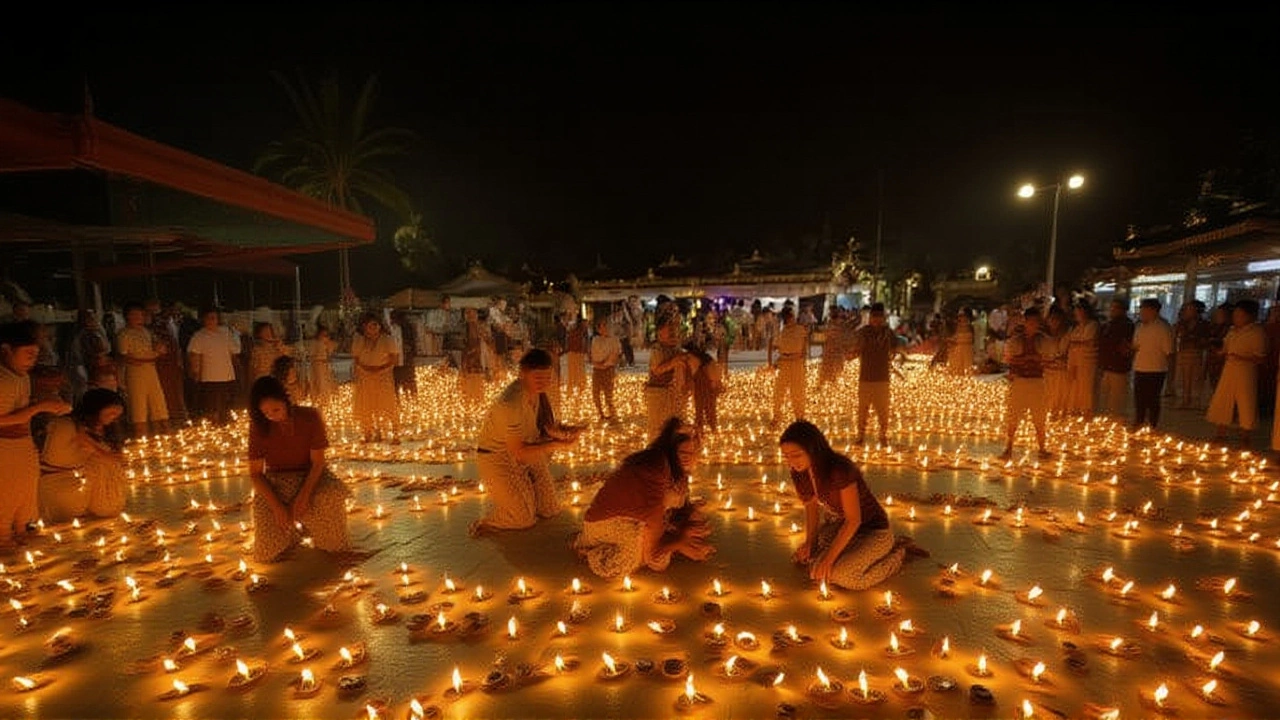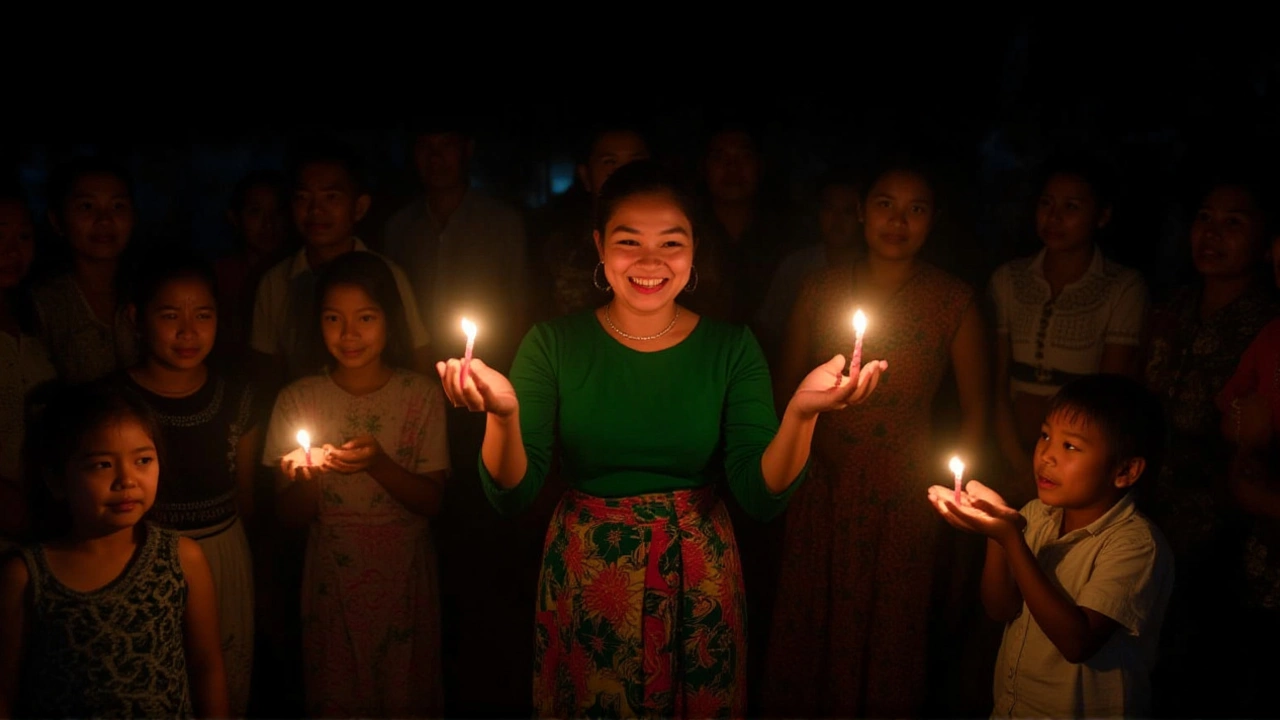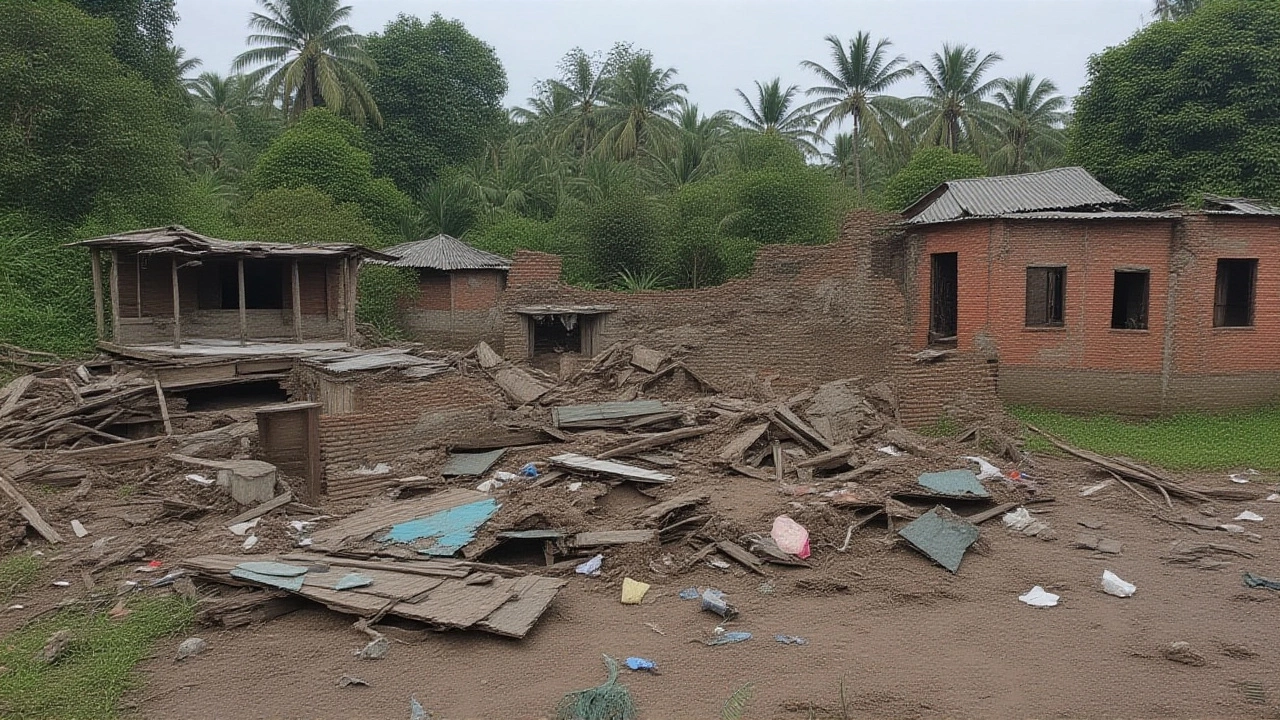In the early hours of September 12, 2025, an Tatmadaw jet dropped two 500‑pound bombs on the private boarding schools Pyinnyar Pan Khinn and A Myin Thit, killing 22 students aged 14‑21 and wounding another 22. The strike, reported by the Arakan Army, sparked condemnation from the Independent Investigative Mechanism for Myanmar (IIMM), UNICEF and the ASEAN Parliamentarians for Human Rights. The attack unfolded in Kyauktaw Township, Rakhine State, adding another grim chapter to Myanmar’s post‑coup conflict.
Background: Conflict in Rakhine State
Since the military coup on February 1, 2021, Rakhine State has been a flashpoint for ethnic and political violence. The region, home to Rakhine, Rohingya, and other minority groups, has endured a series of indiscriminate attacks on civilians, including a string of school bombings documented by the IIMM. Earlier incidents span from a September 2022 strike in Ye‑U District, Sagaing Region, to the May 2025 attack in Oe Htein Kwin village, highlighting a disturbing pattern of targeting educational facilities.
Details of the September 12 Airstrike
According to the Arakan Army, the attack began at roughly 1:00 a.m. local time when a military jet flew over Thayet Ta Pin village (also reported as Thayat Tabin) and released two 500‑pound bombs onto the dormitories. Witnesses say the explosions shattered windows, sending plaster and debris raining down on sleeping students. Emergency responders, many of whom were local volunteers, arrived within an hour, but the damage was already catastrophic.
The IIMM’s Head of Office, Nicholas Koumjian, later confirmed that the blast radius covered both school complexes and several nearby homes, compounding the humanitarian crisis.
International Reactions
UNICEF issued a statement from its New York headquarters on September 12, expressing "extreme concern" and urging all parties to respect international protections for children. Executive Director Catherine Russell emphasized that attacks on schools constitute “a grave violation of children’s rights and a war crime under international law.”
The regional body ASEAN Parliamentarians for Human Rights (APHR) condemned the strike on September 13. Chairperson Mercy Chriesty Barends called it a "calculated act of terror" and demanded concrete action from ASEAN member states. Co‑Chairperson Charles Santiago and Board Member Wong Chen criticized the bloc’s tepid response, urging stronger diplomatic pressure on the junta.
On September 16, the IIMM launched a public appeal for witnesses, urging anyone with photos, videos, or first‑hand accounts to submit evidence. The Mechanism stressed that "airstrikes that are indiscriminate or target civilians may be war crimes or crimes against humanity," and pledged to preserve any material for future prosecutions.

Humanitarian Impact on the Ground
Families of the victims describe a community in shock. One mother, who asked to remain anonymous, said her son was “just trying to finish his homework when the sky fell.” The damage extends beyond the two schools: nearby houses were gutted, displacing several families already living in precarious conditions.
Local NGOs report a surge in displacement following the attack, with an estimated 1,200 people now sheltering in makeshift camps outside Kyauktaw Township. Food aid, once sufficient for 800 individuals, is now stretched thin, and medical supplies are running low as the injured require ongoing care.
Legal and Political Ramifications
The attack raises thorny questions about accountability. Under the 1949 Geneva Conventions, schools are protected civil objects, and any intentional targeting could qualify as a war crime. The IIMM’s collection of evidence could feed into future proceedings at the International Criminal Court, though Myanmar is not a party to the Rome Statute.
For the Tatmadaw, the strike could be framed as a counter‑insurgency measure against the Arakan Army, which claims the schools were used as a base. However, satellite imagery released by independent analysts shows no military equipment on the premises, underscoring the indiscriminate nature of the bombing.

What Comes Next?
Human rights groups are calling for an independent UN fact‑finding mission to investigate the strike. Meanwhile, the UN Security Council is expected to convene an emergency session next week, where member states will debate possible sanctions against senior military officials.
For the surviving students, the road to recovery will be long. UNICEF has pledged to support psychosocial counseling and restore damaged learning spaces, but funding gaps remain a persistent hurdle.
Frequently Asked Questions
How does this attack affect the education of children in Rakhine State?
The bombing destroyed two major boarding schools, leaving over 500 students without classrooms. UNICEF estimates that rebuilding will take at least 18 months, during which many children risk dropping out or joining armed groups for survival.
What evidence is being gathered to hold perpetrators accountable?
The IIMM is collecting satellite imagery, eyewitness testimony, and forensic reports. It has issued a public call for anyone with phone videos, drone footage, or medical records to submit them securely via its online portal.
Why did the ASEAN Parliamentarians for Human Rights condemn the strike?
APHR views the bombing as a blatant breach of international humanitarian law. Chairperson Mercy Chriesty Barends called it a "calculated act of terror" and urged ASEAN governments to adopt concrete measures, such as targeted sanctions, against the junta.
What precedent exists for prosecuting school attacks in Myanmar?
While no Myanmar case has yet reached an international tribunal, the IIMM’s documentation of previous school bombings (e.g., Ye‑U District 2022, Demoso Township 2024) builds a legal foundation that could be used in future ICC or hybrid court proceedings.
What steps can the international community take right now?
Beyond sanctions, experts suggest establishing a UN‑mandated humanitarian corridor to deliver aid, pressing the UN Security Council for a resolution that orders an independent investigation, and increasing funding for UNICEF’s emergency education programs.
